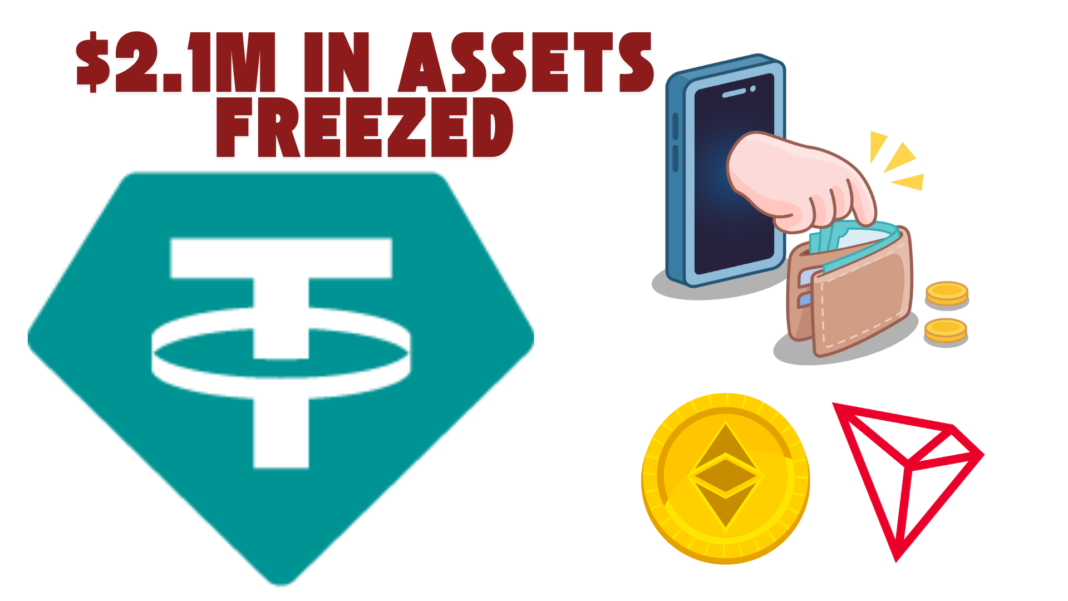Tether, the world’s largest stablecoin issuer, has taken swift action by freezing 18 wallet addresses across the TRON and Ethereum blockchains, affecting approximately $2.1 million in assets.
The move was initially reported by blockchain security firm SlowMist, which highlighted that 11 of the frozen addresses are on TRON and seven on Ethereum.
While Tether has not disclosed the exact reasons behind the freezes, this step aligns with its broader efforts to combat illicit activities and enhance security within its ecosystem.
The incident once again raises critical questions about the role of stablecoin issuers in regulating decentralized finance (DeFi) transactions.
Speculation Over the Nature of the Frozen Assets
Although Tether has yet to confirm specific details, industry analysts speculate that the affected wallets may be linked to illicit activities, including fraud, money laundering, or unauthorized transactions.
Tether has historically taken similar actions against wallets flagged by regulatory bodies, security firms, or law enforcement agencies.
Given the relatively small sum of $2.1 million compared to Tether’s vast stablecoin reserves, the move signals an ongoing commitment to regulatory compliance rather than a response to a large-scale security breach.
The incident has reignited discussions about stablecoin oversight and the degree to which centralized issuers should exert control over blockchain transactions.
Also Read: Crypto.com Delists Tether USDT, WBTC, DAI & Many More To Abide By MiCA Regulations
Tether’s Track Record in Asset Freezing and Regulatory Compliance
Tether has a long-standing history of freezing assets associated with suspicious activities.
The company has previously blacklisted wallets upon requests from law enforcement and regulatory agencies, highlighting its ability to intervene in blockchain-based transactions.
While these measures have been praised for helping prevent misuse of USDT in illicit activities, critics argue that such actions compromise the decentralized nature of cryptocurrencies.
Tether maintains that its interventions are necessary to ensure compliance with evolving global regulations and to uphold the integrity of its ecosystem, especially as stablecoins gain mainstream adoption.
Broader Implications and Recent Developments by Tether
This latest action by Tether underscores the increasing regulatory scrutiny on stablecoin issuers.
With global regulators pushing for greater oversight, Tether is also making strategic financial moves to strengthen its position in the market.
Recently, Tether invested $10 million in Mansa to drive stablecoin-powered cross-border payments and proposed acquiring a 51% stake in Adecoagro, signaling its expansion into broader financial markets.
However, reports also suggest that Tether may be forced to sell Bitcoin and other assets to comply with impending U.S. stablecoin regulations.
As regulatory frameworks tighten, more interventions like these could become commonplace, shaping the future of stablecoin governance and the balance between financial security and decentralization.


